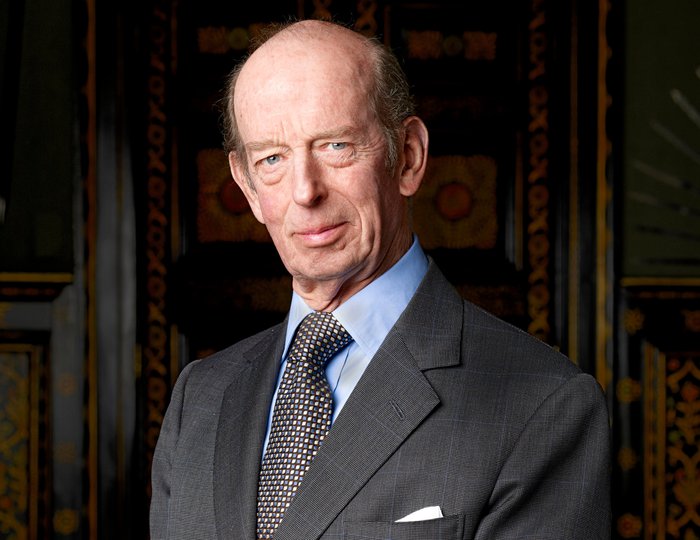His Royal Highness The Duke of Kent marks Blood Cancer Awareness Month
His Royal Highness the Duke of Kent has been our Patron since 1972. He has written the following article to mark our 60th anniversary, to reflect on the challenges of the coronavirus for people with blood cancer, and to look at the wider impact on all charities.

Since the pandemic took hold of the nation earlier this year, each of us has had to adapt to new ways of living and working in order to protect ourselves, our loved ones, and our communities.
Across the UK, two million people have been classified by the Government as extremely vulnerable, and statistics suggest that around one in ten has a form of blood cancer. The significant damage that blood cancer has on the immune system means that those living with it are in more danger of becoming severely unwell if they were to contract COVID-19.
At an especially busy time for the NHS, those experiencing early symptoms may be reluctant to make an appointment with their GP, resulting in far fewer people being diagnosed and treated as soon as they could be. But despite it being the third most common form of cancer, public awareness of the symptoms is perilously low. To complicate matters further, many symptoms of blood cancer, such as a cough, a fever, tiredness or breathlessness, can be easily mistaken for signs of COVID-19, and as such, people may choose to isolate at home rather than investigate further. And those already diagnosed may feel that rather than risking being out in public, they would rather cancel routine appointments, potentially missing crucial signs of developments in their condition.
The stakes for all are very high. The fear is that there are many people in the UK who have blood cancer, but have not yet been diagnosed, and are therefore not taking the necessary measures to shield. Having served as Patron of Blood Cancer UK for nearly 50 years, I have seen first-hand the devastating effect this disease wields on the young and old alike, not to mention their carers and families, who are often one and the same.
That is why throughout September – Blood Cancer Awareness Month – and beyond, it is crucial that we all take the time to learn to recognise the signs and access the resources and support available, to give those who have it the best possible chance of recovery or living as long as possible.
As the charity celebrates its sixtieth anniversary, I am struck by how much has been achieved by scientists, researchers and volunteers since its early days, when the Eastwood family raised funds for the first leukaemia research unit at Great Ormond Street Hospital, following the loss of their six year old daughter, Susan.
An astounding £500 million has been raised and invested by the charity, and the results have been transformative, including enormous progress in the survival rates of childhood leukaemia. 60 years ago, just one in ten children with the most common form of the disease would survive. Today, that figure is, miraculously, eight out of ten*. In 2017, I had the privilege of visiting a UCL laboratory to meet scientists hard at work to improve the treatment of acute lymphoblastic leukaemia, developing alternatives which are gentler on the patient, but no less efficient.
It is thanks to their vision of a world where no one dies of blood cancer that we are now in the position to realise that ambition in the next generation. But as with so many research projects, this progress has been brought to an abrupt halt by the outbreak of the pandemic. Most laboratory-conducted research had to be put on pause until it was safe for it to continue. Scientists were limited to reviewing work that had already been done, while the efforts of medical professionals running clinical trials were, quite rightly, redirected to caring for COVID-19 patients.
But one of the most worrying repercussions on the fight against blood cancer – and, indeed, a great many other diseases and conditions – is the blow that the drop in funding will have on the scientific advances of the future. As funding dries up, the talented researchers, scientists and clinicians of today who could have made the breakthroughs of tomorrow may have no option but to pursue other specialisms, and the impact of losing their expertise could be felt for many years to come.
Beyond Blood Cancer UK, the charity sector is at risk of being another of the victims of COVID-19. Not only do the necessary restrictions make it harder than ever for them to deliver their vital services but the reduction in fund raising activities threatens the very existence of many – especially smaller organisations, who rely entirely on the generosity of the public. The charity sector plays a huge role in our society, stepping in to help and protect people, often at the time when for many they are needed most.
Sadly, in this current climate, some charitable institutions will not survive. Many are now having to be creative in navigating this tricky time and having to make difficult decisions to ensure they remain afloat. Our hope has to be that they do so successfully as their future health is inextricably linked to our own health and wellbeing.
*Since this article was first published survival rates for the most common childhood blood cancer have increased to 9 in10 children – read more here.
